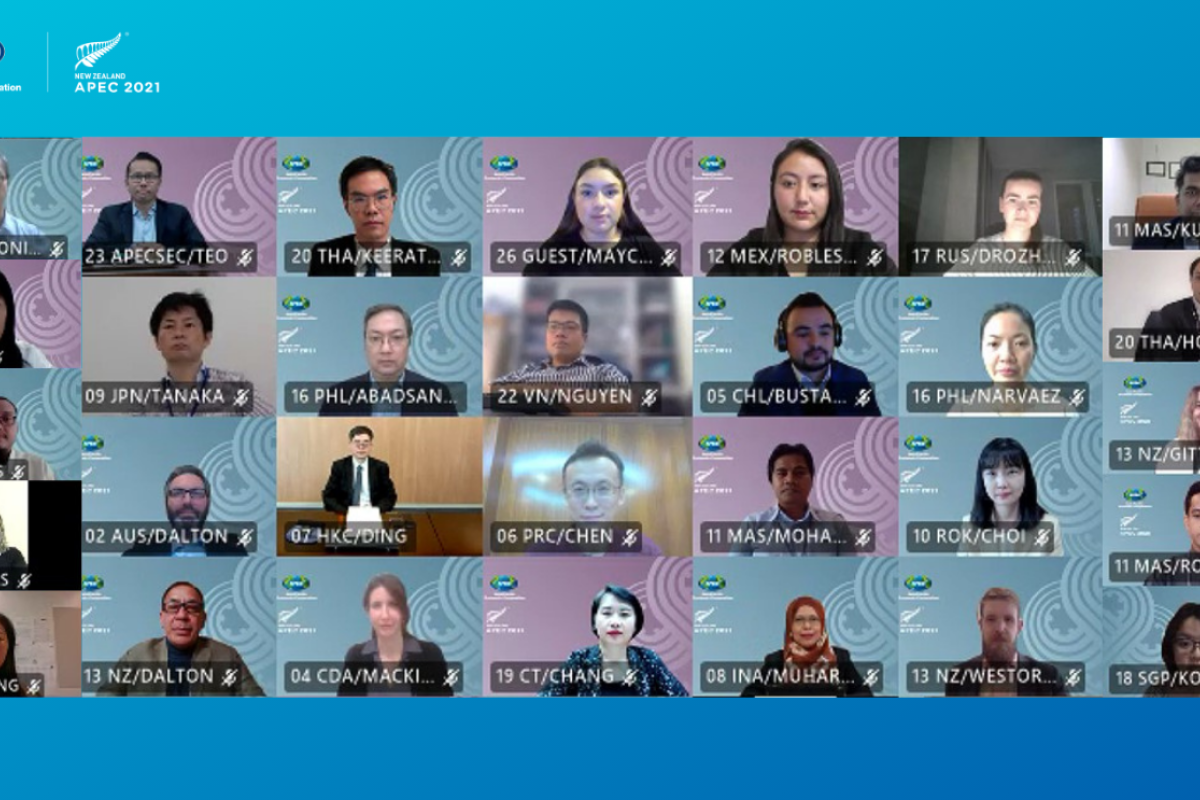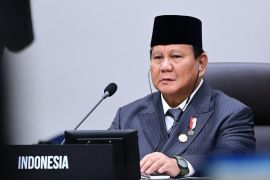With the pandemic lasting longer than we expected and putting economic activities under threat, the need for stronger concerted efforts among APEC economies and a more focused strategy for structural reforms to address economic challenges has becomeJakarta (ANTARA) - APEC member economies, with the aim of achieving sustainable and inclusive growth, have advanced structural reform efforts to underpin rebuilding their economies post-pandemic, with a focus on productivity, innovation, and ease of doing business.
Chair of the APEC Economic Committee, James Ding, made the remarks in a statement issued by the APEC Economic Committee and received here on Wednesday.
"With the pandemic lasting longer than we expected and putting economic activities under threat, the need for stronger concerted efforts among APEC economies and a more focused strategy for structural reforms to address economic challenges has become more critical than ever," he said.
Economies have implemented a wide range of measures to curb the spread of COVID-19, imposed restrictions and at the same time, provided wide-ranging support, such as cash transfers and subsidies to people, he noted.
While this has been crucial in protecting economies and livelihoods, the unprecedented stimulus is not sustainable for the long term, he added.
Related news: APEC members to invest in health equity to revive prosperity
"Structural reforms, however, can provide an effective means of improving the efficiency and simplicity of conducting business that will be essential for recovery and harnessing the growth potential," Ding said.
In June this year, structural reform ministers agreed to revitalize and enhance the APEC structural reform agenda and endorsed the Enhanced APEC Agenda for Structural Reform (EAASR), which outlines four areas of work that will contribute to strong, sustainable, and inclusive economic growth, he added.
Those four areas comprise creating an enabling environment for open, transparent, and competitive markets; boosting business recovery and resilience against future shocks; ensuring that all groups in society have equal access to opportunities and greater well-being; and harnessing innovation, new technology, and skills development to boost productivity and digitalization, Ding informed.
Related news: China contributes to APEC sub-fund on combating COVID-19
The Economic Committee members discussed the implementation plan for the new structural reform agenda, highlighting the need for a review mechanism, intensifying engagement with the private sector, and enhancing collaboration across APEC policy groups, he said.
"The new structural reform agenda or EAASR is fundamental to economic recovery as it presents an opportunity for all APEC economies to reset and build back better in this era of digital economy," he explained.
"We are looking to promote not only more productive and more innovative economies but also more inclusive and sustainable economies," Ding said.
Related news: APEC ministers launch food security roadmap
The committee has also made progress on its annual flagship publication, the APEC Economic Policy Report, which is expected to be published in November this year, he disclosed.
In 2021, the report will focus on structural reform and the future of work, looking at how COVID-19 affects the labor market and its disproportionate impact on women and vulnerable groups, he said.
"The future of work is even more significant now as the pace of digitalization and automation have been accelerated by the pandemic. The upcoming report will provide insights for what future work entails for all of our economies and how we should respond and facilitate this advancement without risking people’s livelihoods," Ding explained.
Related news: APEC clocks robust growth in first quarter
Executive director of the APEC Secretariat, Rebecca Sta Maria, has also emphasized the significance of the APEC structural reform agenda.
"The committee’s work on competition policy, ease of doing business, regulatory reform, good governance and many others are driving and supporting members in implementing reforms at home, which will push APEC’s objective to achieve strong, balanced, secure, sustainable, and inclusive growth," Sta Maria said.
The committee is also promoting initiatives to strengthen economic and legal infrastructure, which include the collaborative framework for online dispute resolution to help small businesses resolve cross-border business-to-business disputes, she added.
Trade flows in the region have increased ninefold since 1989 and member economies have since then doubled their gross domestic product (GDP) per capita, mainly by implementing structural reforms, she noted.
Related news: ADB appoints Jiro Tominaga new director for Indonesia Related news: Scientist specializing in sustainable nutrition wins APEC Prize
Reporter: Yuni Arisandy Sinaga
Editor: Fardah Assegaf
Copyright © ANTARA 2021











